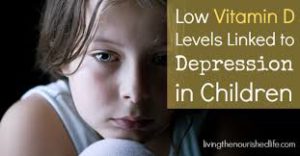Highlights
- •There is adequate evidence for a positive association between vitamin D deficiency and depression.
- •If a depressed individual is deficient, Vitamin D supplementation/augmentation can be an effective treatment.
- •The current evidence base is limited by methodological flaws.
- •There is a need for further randomized controlled longitudinal studies.
Abstract
Objective
To examine whether vitamin D deficiency or insufficiency is associated with depression and whether vitamin D supplementation is an effective treatment for depression.
Method
Empirical papers published in recent years were identified using three search engines and online databases – PubMed, Google Scholar and Cochrane Database. Specific search terms used were ‘vitamin D’, ‘depression’ and ‘treatment’ and articles were selected that examined the association between vitamin D deficiency/insufficiency and depression, vitamin D supplementation and Vitamin D as a treatment for depression. Our review weighted more recent studies (from 2011), although also considered earlier publications.
Results
Empirical studies appear to provide increasing evidence for an association between vitamin D insufficiency and depression, and for vitamin D supplementation and augmentation in those with clinical depression who are vitamin D deficient. Methodological limitations associated with many of the studies are detailed.
Limitations
Articles were restricted to those in the English language while publication bias may have weighted studies with positive findings.
Conclusions
There remains a need for empirical studies to move beyond cross-sectional designs to undertake more randomized controlled longitudinal trials so as to clarify the role of vitamin D in the pathogenesis of depression and its management, as well as to establish whether currently suggested associations are clinically significant and distinctive.
DOI: http://dx.doi.org/10.1016/j.jad.2016.08.082 // http://www.jad-journal.com/

